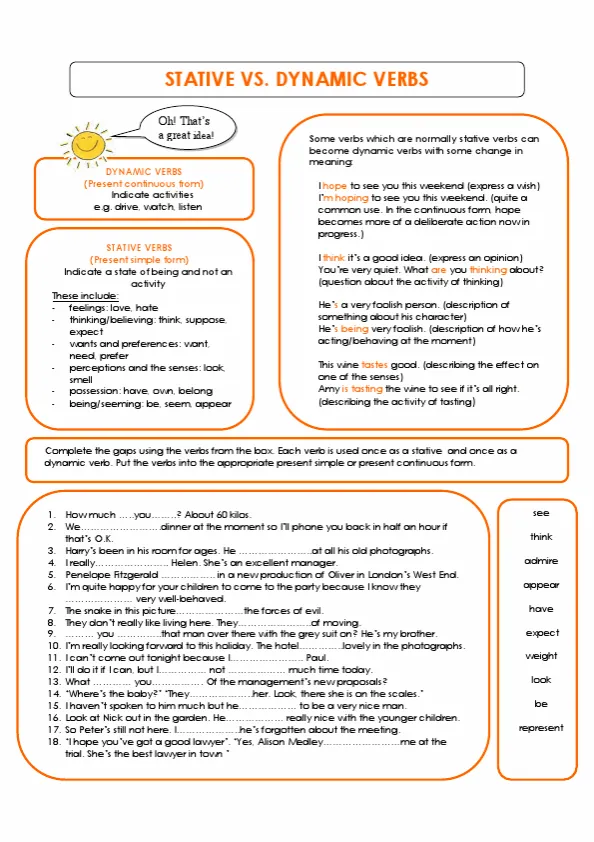
Stative Vs Dynamic Verbs
Some Verbs Which Are Normally Stative Verbs Can Become Dynamic Verbs With Some Change In Meaning
Free ESL Printable Stative Verbs English Grammar Worksheets, Tesol Questions, Esol Quizzes, Tests, Stative Verbs Eal Exercises, Tefl Activities, Flashcards, Language Games, Efl Handouts, Elt Materials, Learning Cards, Stative Verbs Picture Dictionaries, Information and Rules for kids about Stative Verbs, Posters and Puzzles For Kids and Teacher
Stative verbs, also known as non-action or non-continuous verbs, describe a state of being or a condition that is ongoing or permanent. Unlike action verbs, stative verbs do not describe an action that is happening at a specific moment in time. Examples of stative verbs include "be," "feel," "think," "like," "love," "hate," and "believe."
An English worksheet focused on stative verbs typically includes a list of these verbs, along with their meanings and usage. The worksheet may provide examples of sentences using stative verbs and ask the student to identify the verb in the sentence and determine whether it is a stative verb or an action verb.
The worksheet may also provide exercises where the student is asked to replace an action verb with a stative verb or vice versa, or to rewrite sentences using stative verbs instead of action verbs. This can help the student to better understand the different types of verbs and how they are used in English.
Understanding stative verbs is important for students of English, as they are used in a wide range of contexts, from everyday conversation to academic writing. By mastering stative verbs, students can improve their English language skills and communicate more effectively in a variety of situations.
In conclusion, an English worksheet focused on stative verbs can be a valuable tool for students of English, as it can help them to better understand the differences between stative and action verbs and how to use them correctly in different contexts.

Some Verbs Which Are Normally Stative Verbs Can Become Dynamic Verbs With Some Change In Meaning